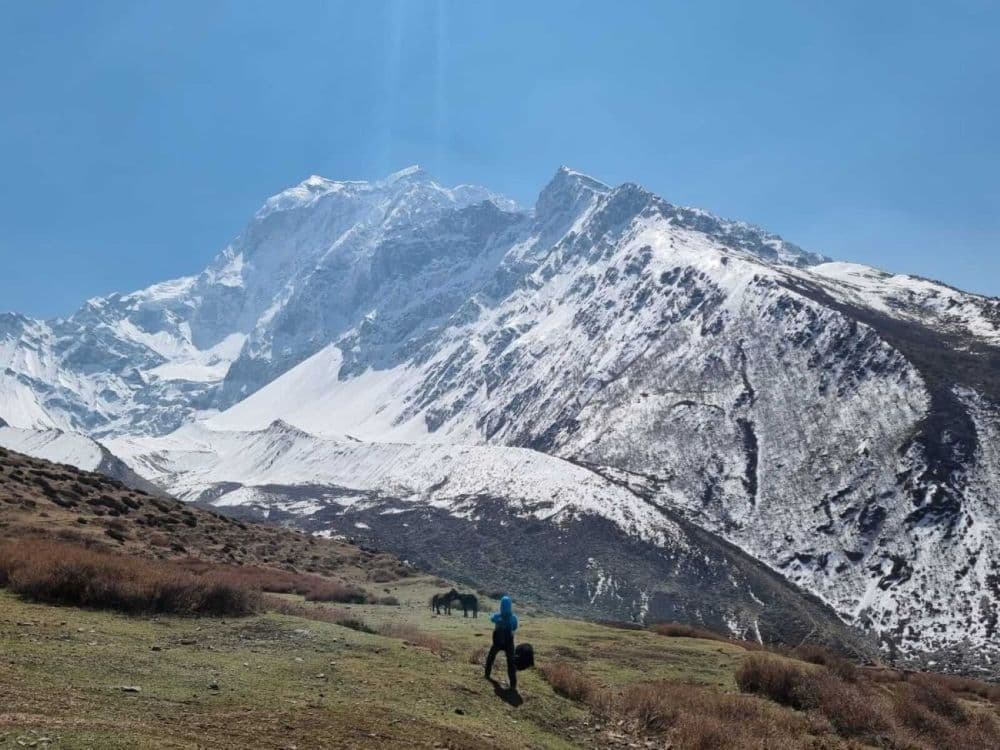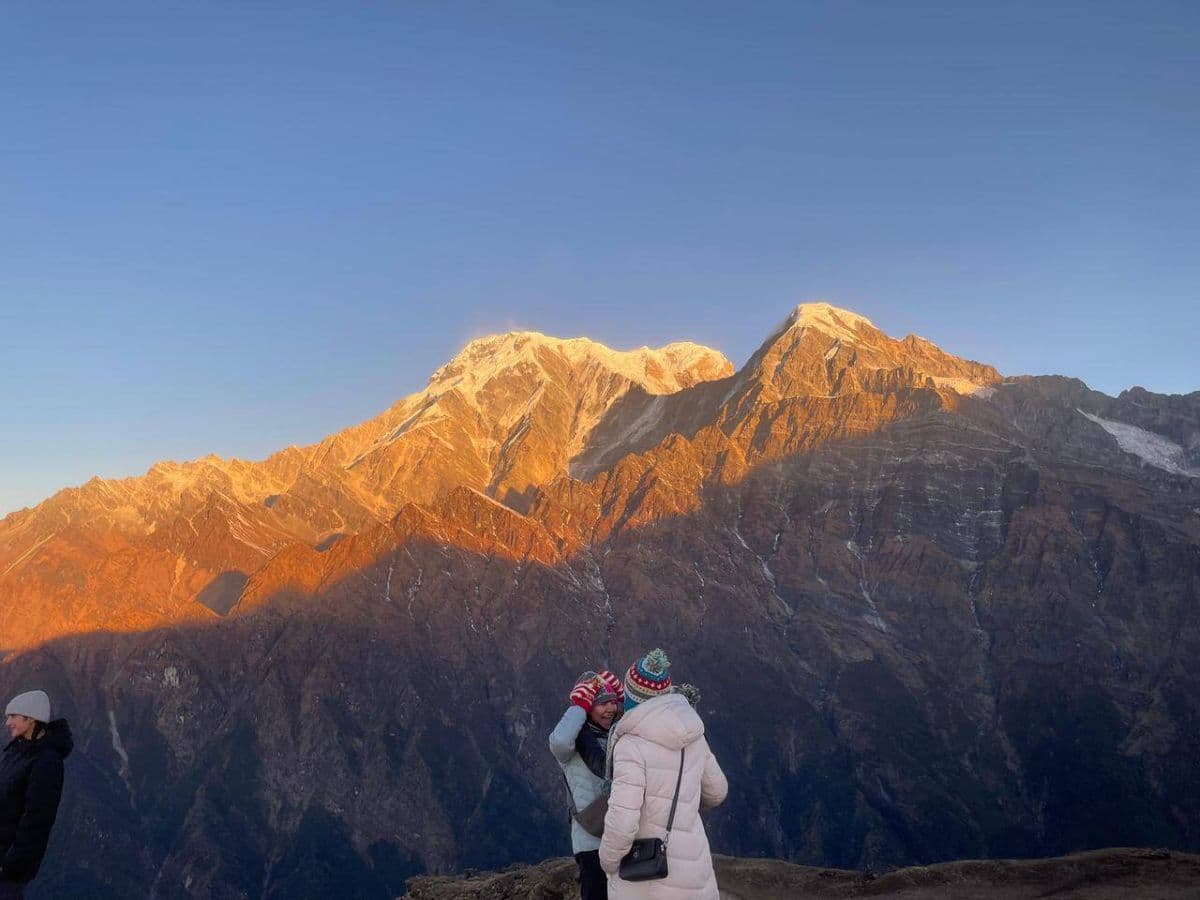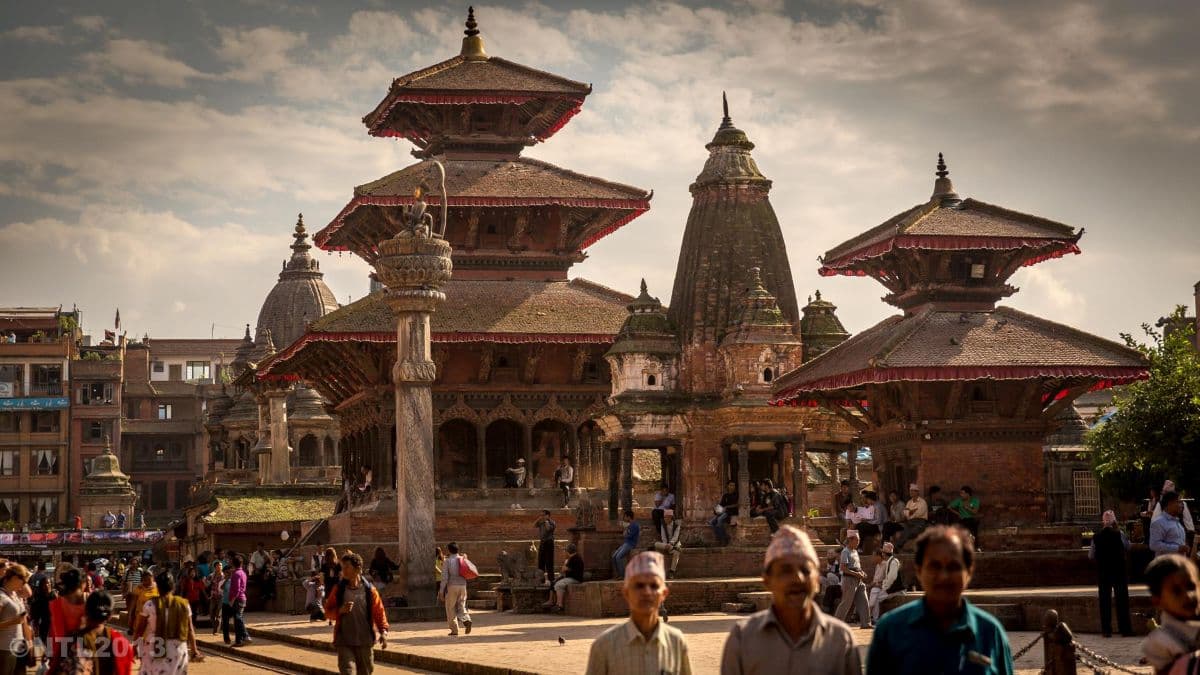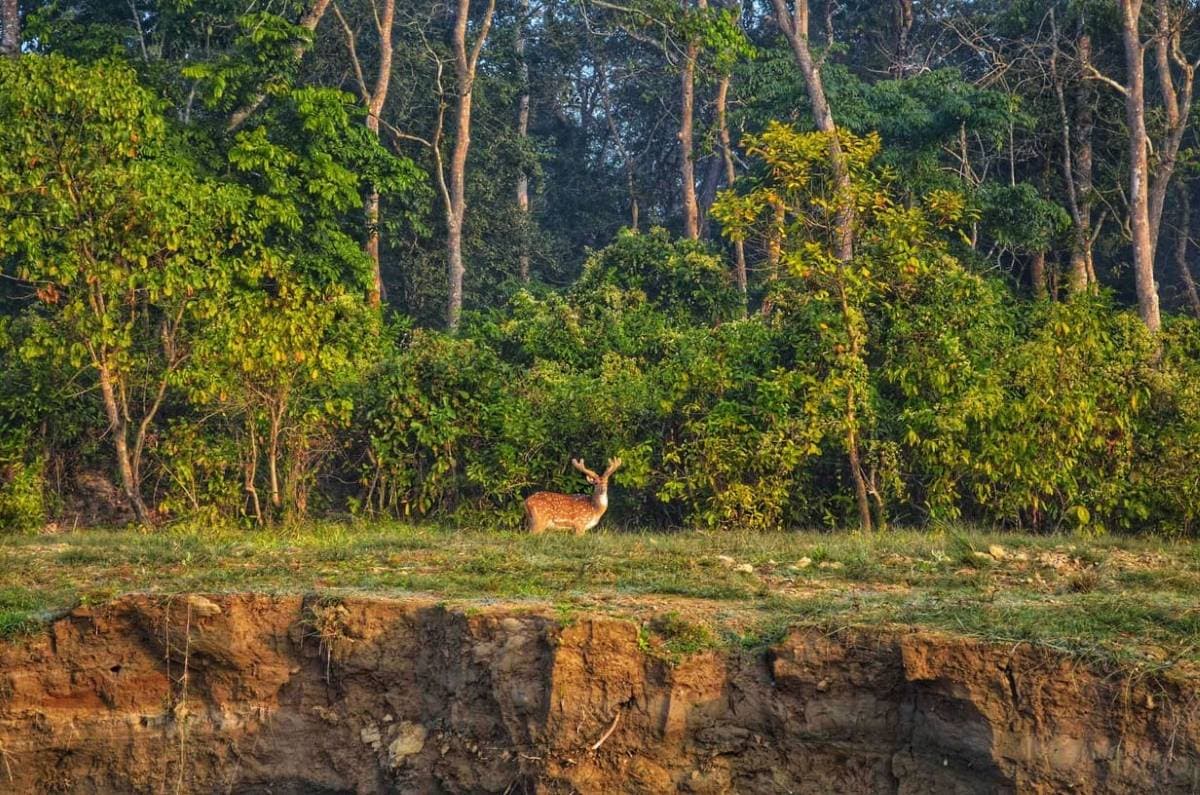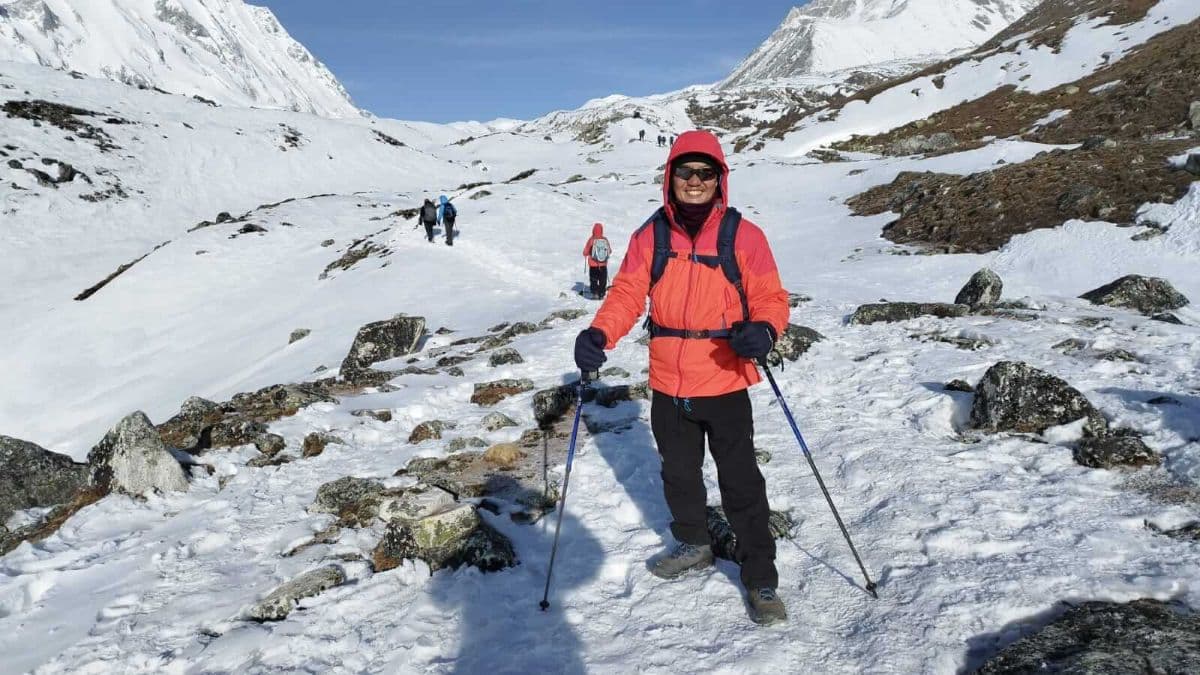
What to Pack for Your First Trek : Ultimate Beginner's Guide
Trekking through the stunning mountains of Nepal is a dream for many. If this is your first time, you might be wondering what to pack for trek adventures like these. Packing right is not just important—it’s the key to enjoying your trip. Whether you're walking along peaceful trails or climbing steep paths, having the right gear can make your journey smooth and fun. This guide will help you understand what to pack for your first trek while getting you excited for your next adventure with Mountain Adventure Nepal.
1. Choosing the Right Backpack
Your backpack is your best friend on a trek. It holds all your gear, so it should be:
- Lightweight and durable
- Comfortable with padded shoulder straps and hip belt
- Water-resistant or come with a rain cover
- Sized appropriately — 30–40 liters for 1–3 days, 50–60 liters for longer treks
2. Clothing: Dress in Layers
Weather in the mountains can be sunny one moment and chilly the next. That’s why layering is the best choice.
- Base layer: A moisture-wicking shirt (not cotton)
- Middle layer: A warm fleece or lightweight jacket
- Outer layer: A windproof and waterproof jacket
- Pants: Quick-dry trekking pants
- Underwear and socks: Wool or synthetic material to stay dry
- Hat and gloves: Keep your head and hands warm at high altitudes
This simple layering system will help you adjust your clothes as the weather changes. It also keeps your backpack lighter.
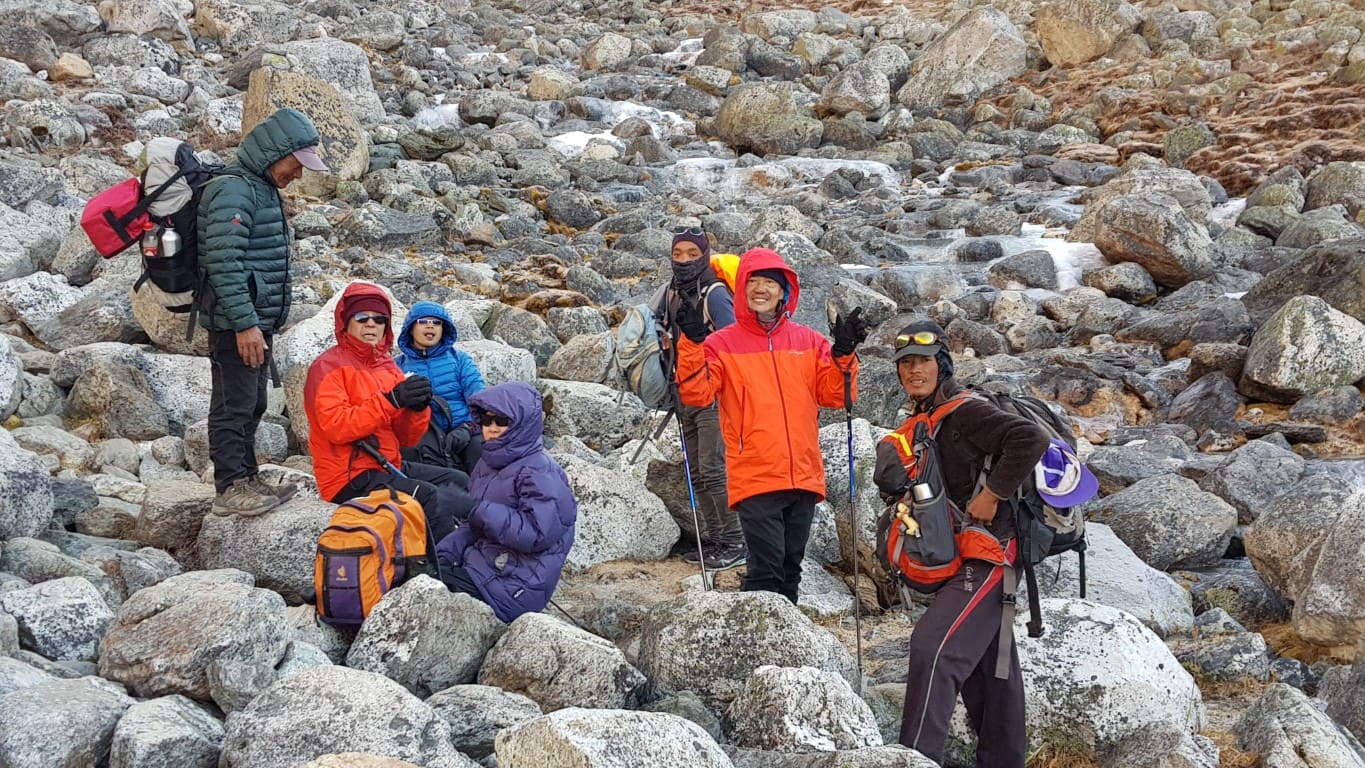
3. Trekking Gear: Essentials You Shouldn’t Forget
- Water bottles or hydration bladder (carry at least 2 liters)
- Torch or headlamp (with extra batteries)
- Power bank or solar charger
- Multi-purpose knife or small tool kit
- Trekking pole(s) – helps reduce pressure on knees
- Snacks – protein bars, dry fruits, nuts, chocolates
- Trash bag – for your waste (Leave No Trace)
4. Footwear: Comfortable and Strong
Your feet will do most of the work, so give them the support they need.
- Trekking boots: Waterproof, broken-in, and with ankle support
- Camp shoes: Lightweight shoes or sandals for relaxing after hiking
- Trekking socks: Bring at least 3 pairs
Blisters are no fun, so test your boots before the trek. Even though flip-flops seem easy to carry, they are not safe for rocky paths.
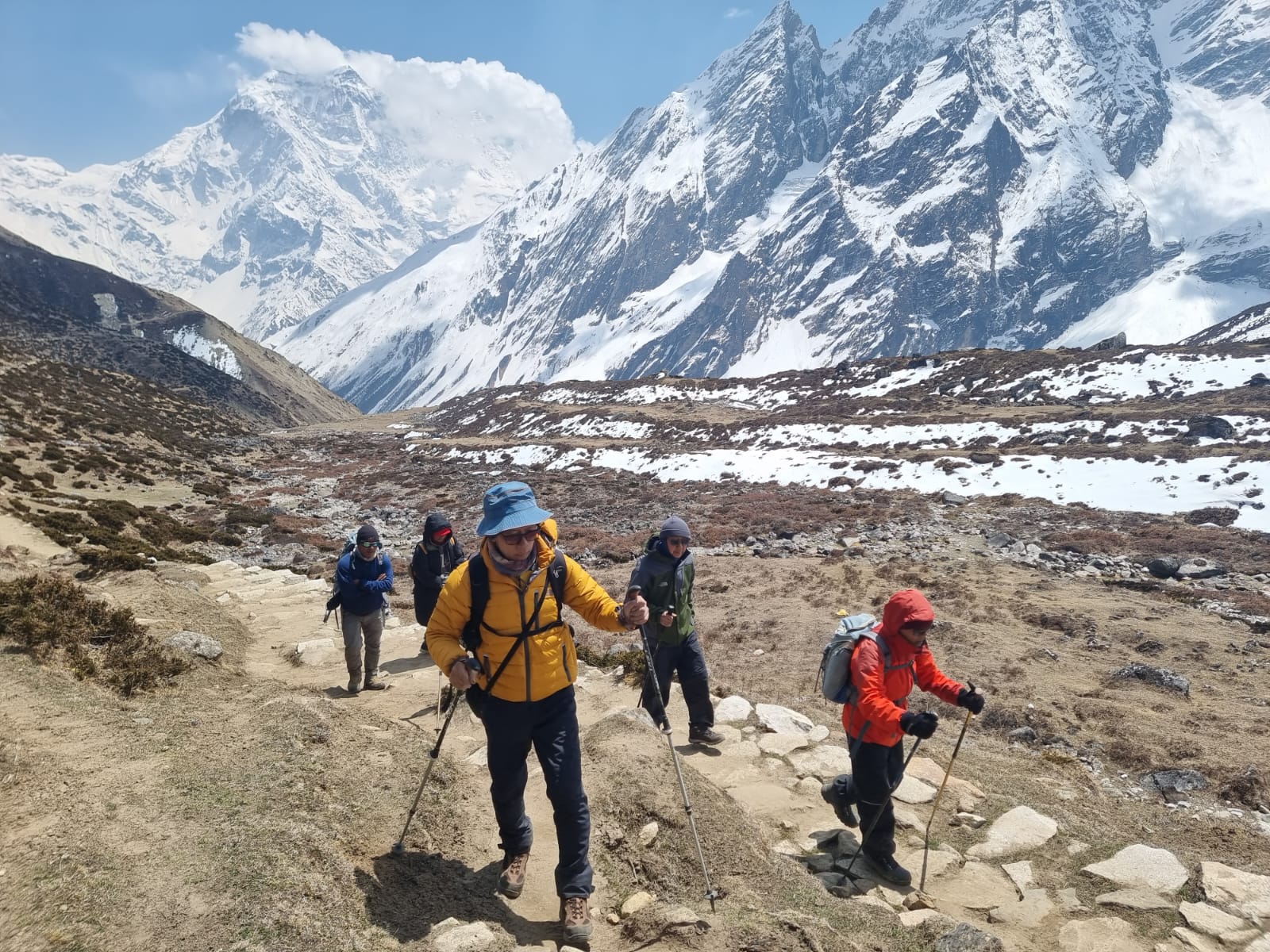
5. Sleeping Gear: Stay Cozy at Night
Most treks in Nepal offer teahouse stays. Still, nights can get cold.
- Sleeping bag: A warm one, rated for -10°C or lower
- Sleeping bag liner: Adds extra warmth and keeps your bag clean
Even though blankets may be available, having your own sleeping gear is cleaner and warmer.
6. First Aid Kit: Safety First
Always carry a basic first aid kit, including:
- Band-aids and gauze
- Antiseptic cream
- Pain relievers (Paracetamol, Ibuprofen)
- Muscle spray or balm
- Motion sickness pills
- Cold and cough tablets
- ORS or electrolyte powder
- Any personal medications
7. Daypack and Backpack
- Daypack: 20–30 liters, for water, snacks, and jacket
- Main backpack: 50–65 liters, for everything else
If you book with Mountain Adventure Nepal, a porter can carry your main bag. That way, you only need to carry what you need for the day.
8. Toiletries & Personal Hygiene
Stay fresh and safe by packing smart.
- Toothbrush and small toothpaste
- Biodegradable soap or body wipes
- Travel-size sunscreen and lip balm (SPF 30+)
- Small hand sanitizer
- Toilet paper or tissues
- Menstrual hygiene products (if applicable)
- Lightweight towel or microfiber towel
- Comb and nail cutter
Although you won’t find luxury in the mountains, staying clean helps you feel better each day.
9. Electronics and Extras
A few extras can really help.
- Headlamp: For walking around in the evening
- Power bank or solar charger
- Camera or phone
- Trekking poles: Great for balance and reducing stress on knees
- Reusable water bottle or hydration bladder
Since charging spots are limited, bring extra batteries or solar chargers.
10. Food and Snacks
Teahouses will provide meals, but snacks give you extra energy during hikes.
- Energy bars or trail mix
- Electrolyte powders or tablets
- Instant coffee or tea bags (if you have a favorite)
A small treat can be a big boost when you're tired.
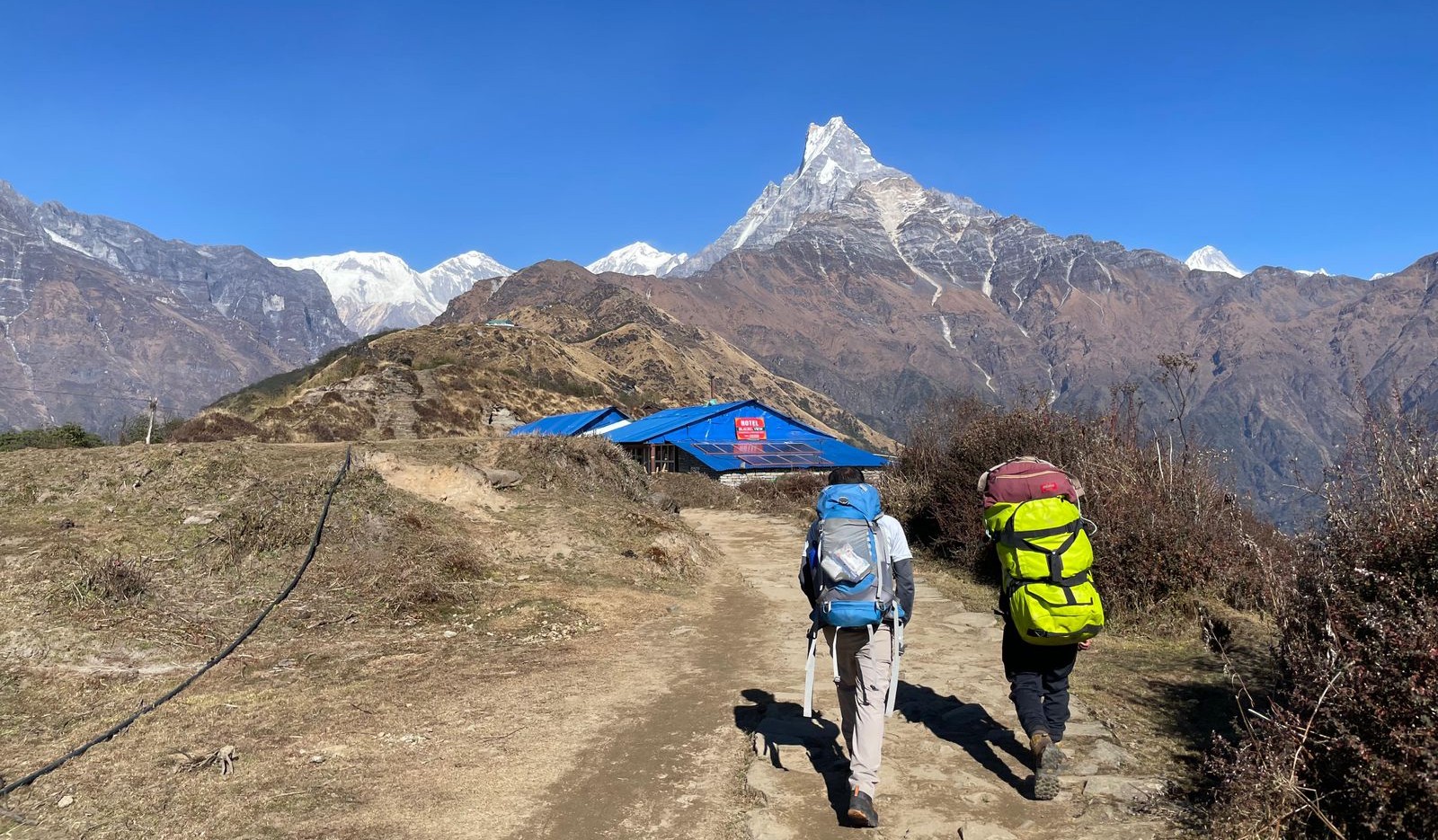
11. Important Documents and Money
Always keep these in a waterproof pouch or bag:
- Passport and trekking permits
- Cash (Nepalese Rupees) – ATMs may not be available
- Travel insurance copy
Even though these items are small, they are some of the most important on your hiking checklist.
Ready to Hit the Trail?
Packing for your first trek might seem like a lot, but once you're out on the trail — breathing fresh air, soaking in the views, and feeling that sense of freedom — you'll realize it's all worth it.
Book your adventure with Mountain Adventure Nepal today.
